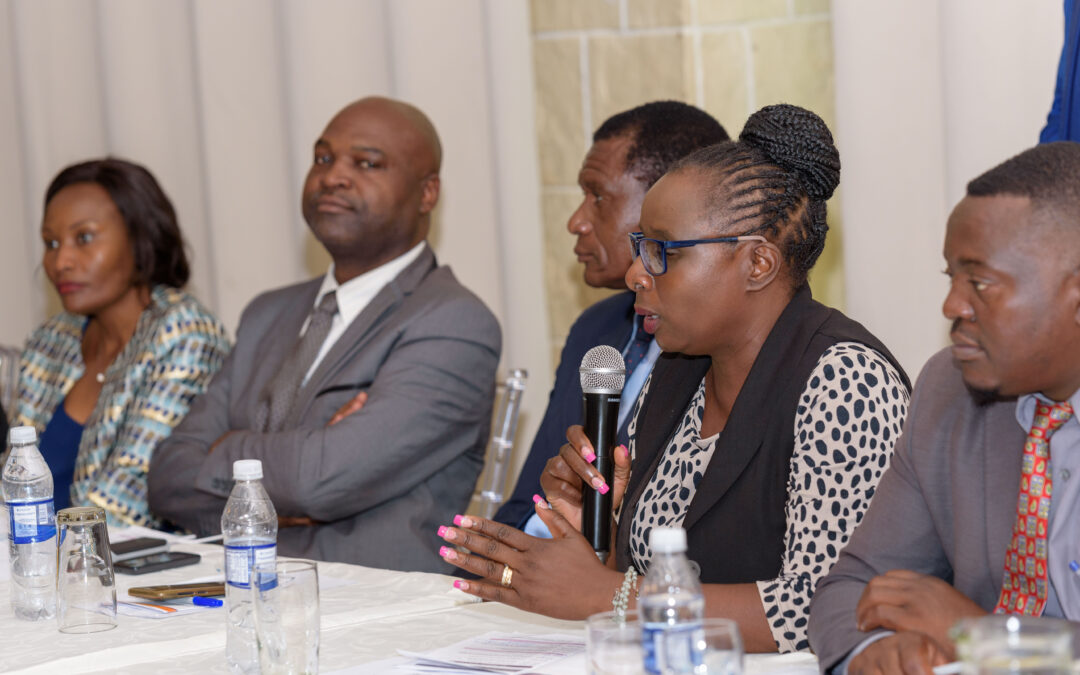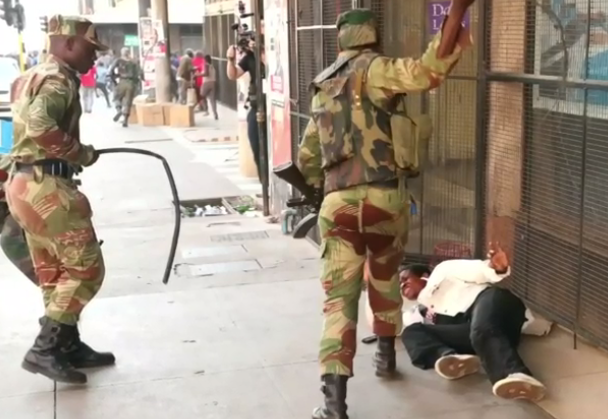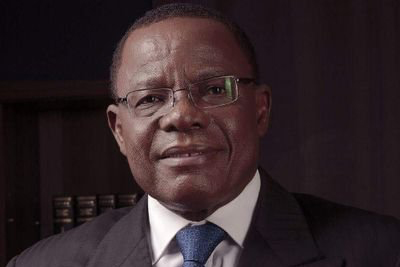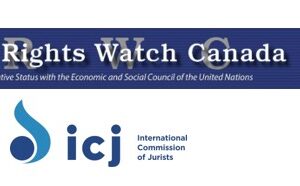
Mar 20, 2019 | News
Today, the ICJ launched a legal aid clinic project in collaboration with Great Zimbabwe University, Herbert Chitepo Law School to help facilitate the establishment of a legal aid clinic at the University’s Mucheke campus.
The clinic is located at the Mucheke Campus of University in a high-density suburb in Masvingo, thereby making the services offered by the legal aid clinic more accessible for persons from disadvantaged or marginalized groups in the community.
The project, supported by the European Union, aims to improve access to justice for communities by offering free legal assistance at the University legal aid clinic, while also providing an opportunity for students to develop critical skills that will enhance their work as legal practitioners. The activity is part of a wider initiative to develop and improve University legal aid clinics in Zimbabwe.
Arnold Tsunga, the ICJ Africa Regional Director, remarked that the launch of the legal aid clinics is a building block towards greater access to justice for the people of Zimbabwe and a positive step towards attainment of SDG 16 which speaks to the importance of peace, justice and strong institutions.
Francisca Midzi, a representative of the European Union delegation to Zimbabwe, stated in her remarks that “as the law students encounter real legal problems faced by the people, [the initiative] will teach them to have a social and professional responsibility to pursue justice in society. Herbert Chitepo Law School is injecting and inculcating a spirit of service in their students and they will carry it wherever they go to practice law and gradually this will transform Zimbabwe’s legal system to be more concerned about a court user who has limited knowledge and means to fully access justice.”
Professor R.J. Zvobgo, the Vice Chancellor of Great Zimbabwe University, commended this milestone achievement and stated that it provides an opportunity for the students to give back to the community by improving the ability of persons from affected groups to access justice.
“The free legal aid assists in eradicating the notion that a university is an ivory tower, divorced from the realities of the community in which it is located,” he said.
Contact:
Brian Penduka, e: brian.penduka(a)icj.org, t: +263772274307
Elizabeth Mangenje, e: elizabeth.mangenje(a)icj.org, t: +263774742420

Mar 19, 2019 | News
The ICJ in partnership with the National Prosecuting Authority (NPA) convened a two day training workshop to build the capacity of Chief prosecutors and Senior management to effectively investigate corruption cases.
The training workshop took place at the Wild Geese Lodge, Harare on 18 – 19 March 2019.
The new government under President Mnangagwa, saw a shift in government priorities evidence of this is the launch of the Transitional Stabilisation Programme in October 2018. The Transitional Programme seeks to propel the country towards stabilisation and economic development as well eradicate corruption.
Through this programme, the government has established institutions to deal with corruption, this has seen the establishment of Special Anti-Corruption Courts, which has resulted in an increase in high level arrests on corruption charges. Additionally a new Anti-Corruption Prosecution Unit was established within the Office of the President and Cabinet to improve efficiency in the fight against all forms of graft and to strengthen the effectiveness of national mechanisms for the prevention of corruption.
This anti-corruption training workshop therefore becomes relevant in the government’s fight against corruption. The main objective of the workshop is to enhance the capability of prosecutors to handle corruption cases effectively.
Presentations focused on understanding corrupt practices; defining white collar crime and financial crimes in Zimbabwe; domestic, regional and international framework on corruption; seizure, freezing and confiscation of the proceeds of corruption; and the practical steps to combatting corruption. It is hoped that at the end of the two day meeting, prosecutors will effectively implement legal frameworks and policies in the prosecution of corruption cases.
Prosecutor General Hon K. Hodzi in his opening speech remarked that the NPA is proud of their partnership with the ICJ in their fight against corruption. He was grateful for the continued support from the ICJ. The Prosecutor General noted that corruption is a lived experienced by everyone in this country because it has direct impact on the socio-economic welfare of the people of Zimbabwe. He noted that this was an important workshop which would serve as a toolkit that would help renew the NPA’s approach to in the prosecution of corruption in this country.
The Prosecutor General hoped that the workshop would enable the prosecutors to share knowledge and experience as well meaningful discourse bordering around challenges in the prosecution of corruption cases. This approach would enable the NPA to contribute to effectively eliminating corruption in the improvement of justice in Zimbabwe. He urged prosecutors to show that corruption does not pay and can be defeated.
Present at the training workshop was the Prosecutor General of NPA, senior prosecutors and senior management, representatives from the Judicial Service Commission, Solomon Mhlanga from Office of the President and Cabinet, Mr. Shana from the Judicial College of Zimbabwe, Mr. Zowa from the Law Development Commission representatives from Transparency International Zimbabwe, and representatives from the Reserve Bank of Zimbabwe. There were a total of 45 (forty-five) delegates; 29 (twenty-nine) male and 16 (sixteen) female delegates.
Contact:
Brian Penduka, e: brian.penduka(a)icj.org, t: +263772274307
Vimbai Mutandwa, e: vimbai.mutandwa(a)icj.org, t: +263773517733

Mar 15, 2019
Today the ICJ issued a Legal Brief note in order to help in understanding the offence of Subverting a Constitutional Government under Zimbabwe law.
Following protests that occurred in most major cities and towns in Zimbabwe in January 2019, a number of activists, human rights defenders, civil society leaders and opposition leaders have been arrested and charged with ‘subverting constitutional government’ as provided for under section 22 of the Criminal Law (Codification and Reform) Act [Chapter 9:23] (hereinafter referred to as the Criminal Code).
This legal briefing note seeks to provide an explanation of the elements of the crime and how it has been construed by Zimbabwean courts, and whether and to what the resort to section 22 has accorded with international law and standards, including African regional standards.
Under Zimbabwe’s existing laws, a person may be charged with an offence known as ‘subverting constitutional government’.
This is a crime akin to but less serious than treason. It is nonetheless an offence which attracts a sentence of up to 20 years in prison.
Various protesters have been arrested on the allegations that their public statements amounted to inciting the commission of this crime.
Following the January 2019 protests, more than 5 protesters and MDC opposition members have been charged with this crime.
Despite the high number of arrests based on this charge in the past few years, there have been no convictions.
Where the basis of the charge are public statements made, the question of what exceeds legitimate exercise of the right to freedom of expression arises.
As such, there is need to interrogate where the line is drawn between legitimate and illegitimate exercise of the right to freedom of expression.
International human rights law, pursuant both universal and African regional standards, protects for the rights of persons to freedom of opinion and expression (Article 9 ACHPR; article 19 ICCPR), freedom of assembly (article 11 ACHPR;21 ICCPR) article, freedom of association (article 10 ACHPR; article 22 ICCPR), and the right to political participation (article 25 ICCPR).
These provisions in these international instruments impose an obligation on all state parties to respect the rights of persons under their jurisdiction.
Zimbabwe as a member state is bound by these provisions and similar provision under sections 58 (freedom of assembly and association), section 59 (freedom to demonstrate and petition), section 60 (freedom of conscience) and section 61 (freedom of expression).
These rights and fundamental freedoms, when exercised by human rights defenders, have been accorded heightened protection in international standards in particular through the UN Declaration on the Right and Responsibility of Individuals, Groups and Organs of Society to Promote and Protect Universally Recognized Human Rights and Fundamental Freedoms (Declaration on Human Rights Defenders), adopted in 1999 by consensus of the General Assembly
While these freedoms are not absolute, under international law, any restrictions must be (i) legitimate, provided by law which is clear and accessible to everyone and formulated with sufficient precision to enable an individual to regulate his or her conduct; (ii) proven strictly necessary to protect the rights or reputation of others, national security or public order, public health or morals and (iii) proven to be the least restrictive and proportionate means to achieve the purported aim.
Contact
Elizabeth Mangenje, e: elizabeth.mangenje@icj.org
Brian Penduka, e: brian.penduka@icj.org
Arnold Tsunga, e: arnold.tsunga@icj.org
Zimbabwe-Subverting Constitutional Gvt-Advocacy-Analysis Brief-2019-ENG (full legal brief in PDF)

Feb 5, 2019 | News
The ICJ expressed its grave concern today at the arrest, detention and criminal charges brought against Maurice Kamto, leader of the opposition party Cameroon Renaissance Movement (CRM), and other CRM activists.
The ICJ called for the immediate release of Maurice Kamto, who is also former Commissioner of the ICJ.
The arrest of Maurice Kamto, on 28 January, came following the violent breakup by the security forces of opposition demonstrations on 26 January.
Maurice Kamto is said to face charges of sedition, insurrection and inciting violence.
There are reports that he and other arrested persons have begun a hunger strike.
The ICJ is concerned that Maurice Kamto and other opposition leaders may be prosecuted for the exercise of rights protected under international law, including the rights to freedom of expression, association, assembly and political participation
The ICJ called on the Cameroon authorities to fully safeguard the human rights of Maurice Kamto and the other detainees, including the rights to liberty, fair trial, and freedom from ill-treatment, guaranteed under Cameroonian and international law.
Contact:
Arnold Tsunga, ICJ Africa Director; t: +27716405926, or +254 746 608 859 ; e: arnold.tsunga(a)icj.org
Solomon Ebobrah, Senior Legal Adviser, ICJ Africa Regional Programme, t: +234 8034927549 ; e: solomon.ebobrah(a)icj.org

Jan 15, 2019
The ICJ and CORE argue that mining giant Vedanta has a duty of care to villagers affected by its Zambian subsidiary’s copper mining activities.
The UK Supreme Court is to hear an appeal on 15 and 16 January from mining giant Vedanta Resources, in a case brought by 2,000 Zambian villagers who claim that their water and land have been poisoned by the firm’s operations.
The Court will consider evidence from the ICJ and corporate accountability group CORE, that under existing law and international standards, Vedanta owes a legal duty of care to the Zambian villagers. Acceptance of this principle would make the merits of the case arguable before UK Courts and allow for their jurisdiction to hear the case in future proceedings.
Vedanta is seeking to overturn a Court of Appeal ruling from last year, which upheld the High Court’s view that UK Courts would have jurisdiction to hear the case in significant part on the basis that a UK parent company may owe a duty of care to third parties affected by its subsidiaries’ activities.
The CORE and the ICJ submission to the Court argues that the Court of Appeal’s conclusion is supported by international standards on companies’ human rights and environmental responsibilities; UK government publications aimed at implementing those standards, including its Business & Human Rights Action Plan; and comparative law jurisprudence.
Vedanta has stated that its “sustainable development agenda” has been developed in line with the international standards to which the submission refers.
These standards are therefore relevant to the factual question of whether Vedanta controlled and/or had assumed responsibility for the activities of its Zambian subsidiary, Konkola.
The case is a pivotal test for the development in the UK, and across common law and possibly other jurisdictions of parent company liability for human rights and environmental harm.
Victims of corporate human rights abuses face multiple barriers in holding companies to account and securing access to justice.
A clear statement from the UK Supreme Court affirming the duty of care principle would assist communities who have been harmed by corporate activities, and would provide an important affirmation of the scope of parent companies’ obligations.
Contact
Carlos Lopez, ICJ Senior Legal Adviser, t: +41 22 979 3816 ; e: carlos.lopez(a)icj.org
UK-Intervention-ICJ-CORE-Advocacy-legal submission-2019-ENG (full submission in PDF)









